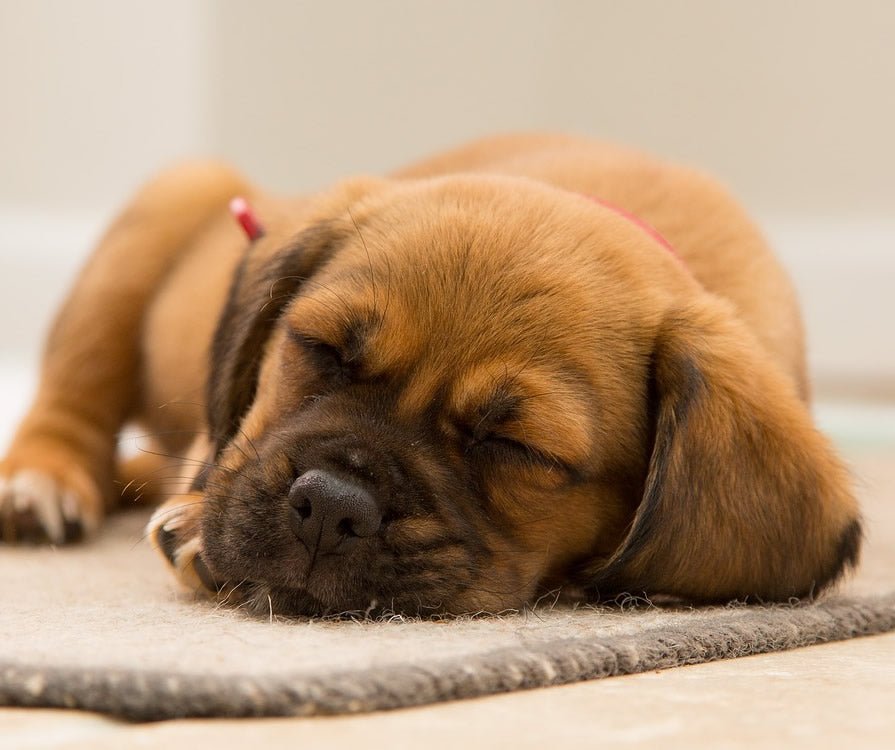![]() Listen to the Podcast
Listen to the Podcast
I'm eagerly counting the days until my newest family member comes home! It's been a while since my last puppy, so I'm constantly going over the things I need to get done for my new boy's arrival. It was Spa-Sunday at my house yesterday, which means all of my dogs get a light grooming and toenail trim.
It occurred to me as I was trimming nails, that soon I'd be starting from scratch with a squirmy puppy and I began to go over the steps I'd be taking to make said puppy calm and comfortable with Spa-Sundays.
Starting from scratch can be overwhelming, even when you've done it a number of times before. I have at least 25 mental checklists growing at any given time, so I thought it would be helpful to organize my thoughts on the matter by making a list of the major components that will need covering.
Socialization
This is a given, but to make sure you cover everything takes planning! We previously posted an article on socialization and 10 things to include in your socialization checklist. Proper socialization is crucial for the well-being of your adult dog. Always remember that the quality of socialization is important. Experiences must be positive for the puppy, not overwhelming, and should not be entirely focused on external factors. It's important that pups don't become obsessed with the exciting things in their environment, like other dogs and people, but they do need to learn to be comfortable with their presence.
Handling
Everywhere and anytime we want our pups to be comfortable with handling. We've previously posted about 6 Handling Situations you'll want to prepare for. Handling skills for grooming and vet care are crucial to ensure you can routinely care for your dog. Not every dog is ready to make friends with strangers, and that's okay, but they do need to be able to be handled by your veterinarian and possibly others. Even if it's not in their nature to love it, they should learn to tolerate handling in order to minimize stress for everyone, including themselves.
In addition, day-to-day skills, like taking the collar and clipping on a leash are important as well. They shouldn't be taken for granted.
Food Bowl & Possession Games
Making sure your dog is "safe" when they have something of value is important. There are many steps to making sure your dog is comfortable with you taking food, toys or chewies away from them when it's necessary. Setting up a training program right from the beginning will make your dog feel more comfortable about others around them while they eat or chew and will help to ensure you are able to keep them and everyone else safe.
Crate Training
Crating is a very important step. Puppies are explorers and they love to chew things. If they are loose without supervision, they're likely to get into mischief by either chewing something they shouldn't or having an accident in the house. Crate training is best started right from day one with positive association work. Things like crate games and feeding puppies in their crates can go a long way toward helping your puppy accept their crate as a comfy den.
Drop It
This is one of the first things I teach a young puppy. I want to make sure that if he picks up something that's dangerous, it's a non-issue to convince him to spit it out right away. Teaching your pup to relinquish things to you will also help with relationship. If you are forced to chase them down and try to wrestle it from them, you will teach them that they can play catch-me-if-you-can and they'll also learn to distrust you when they have something of percieved value. Puppies learn to evade and swallow quickly when they don't understand that giving objects up to you is a good thing.
Tricks!
I want all of my dogs to have a positive attitude about learning and working with me, so in the early days, I don't spend a great deal of time teaching all sorts of complicated skills. I teach tricks! Rollover, shake-a-paw, spin, bow.... tricks! Puppies quickly learn that you are fun, that you have rewards and they can earn those rewards. Tricks are stress free. There's no consequences for errors, just rewards for thinking and perservering. Have some fun with shaping games with your puppy and they'll learn to think and offer behaviours. There's no limit to the things you can teach through shaping!
Here's a video to describe the process of shaping:
There's a lot to do when a new puppy is coming home. Getting yourself organized with a checklist can be the first step to a wonderful relationship.
Happy Training!

